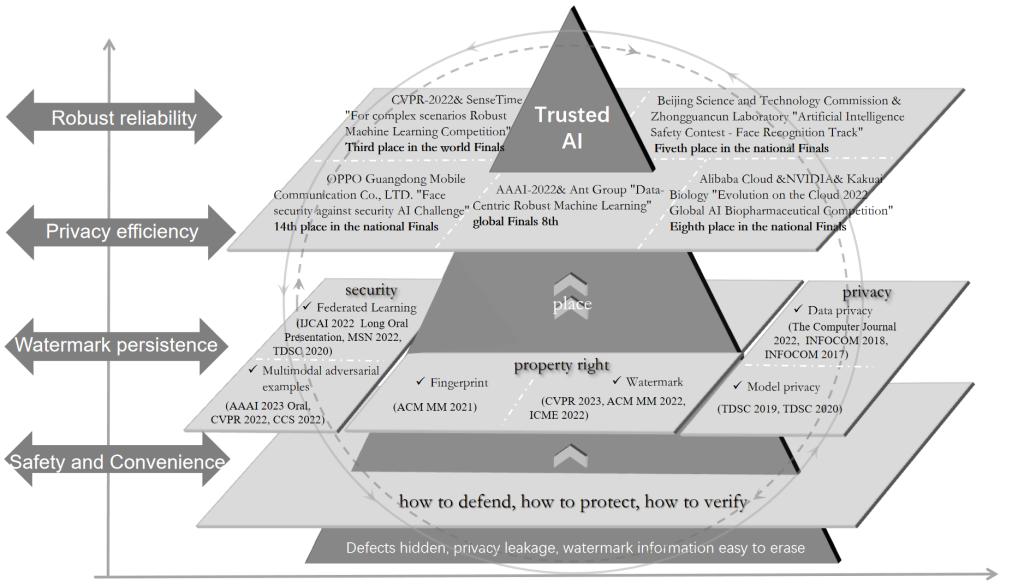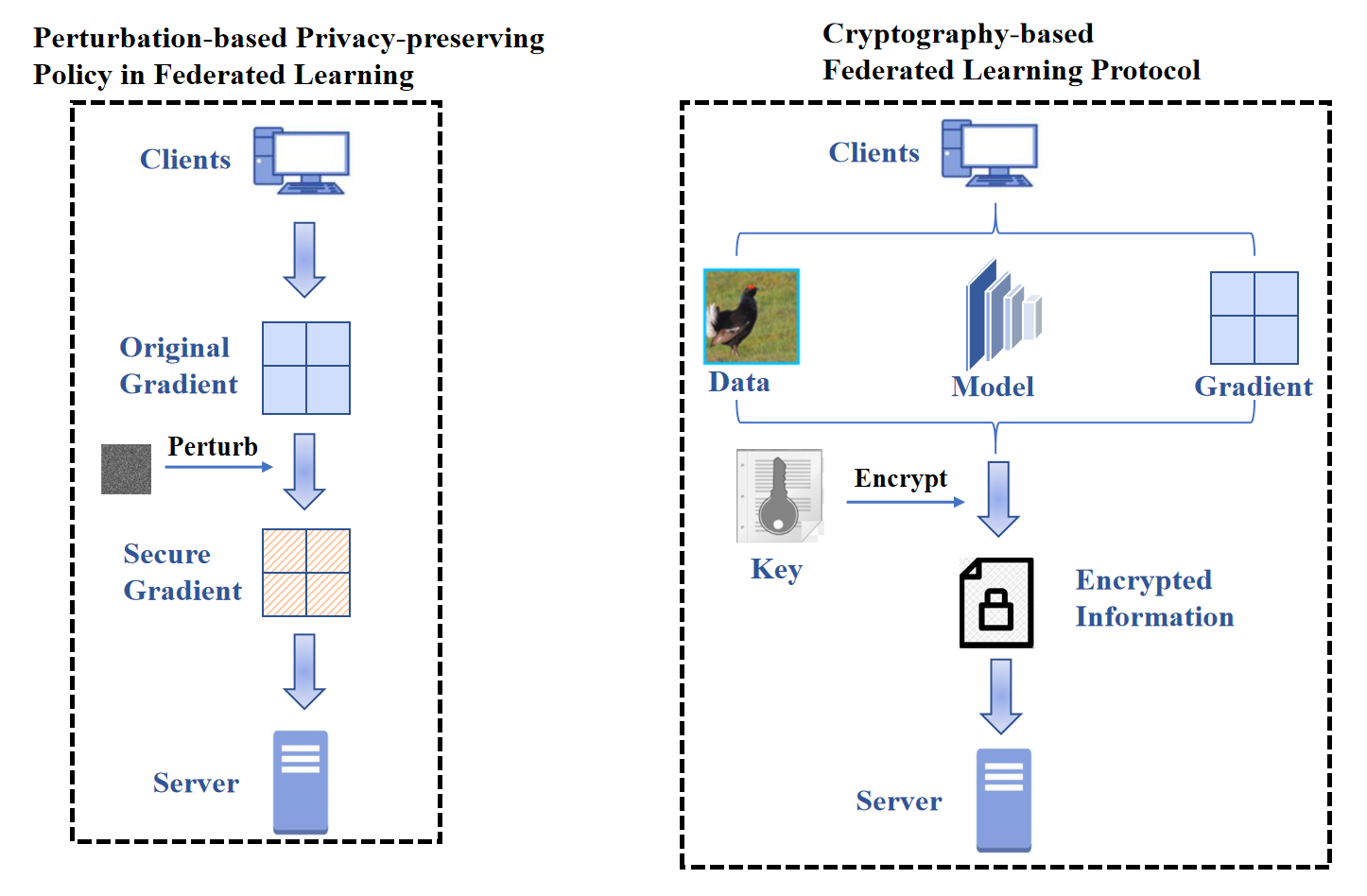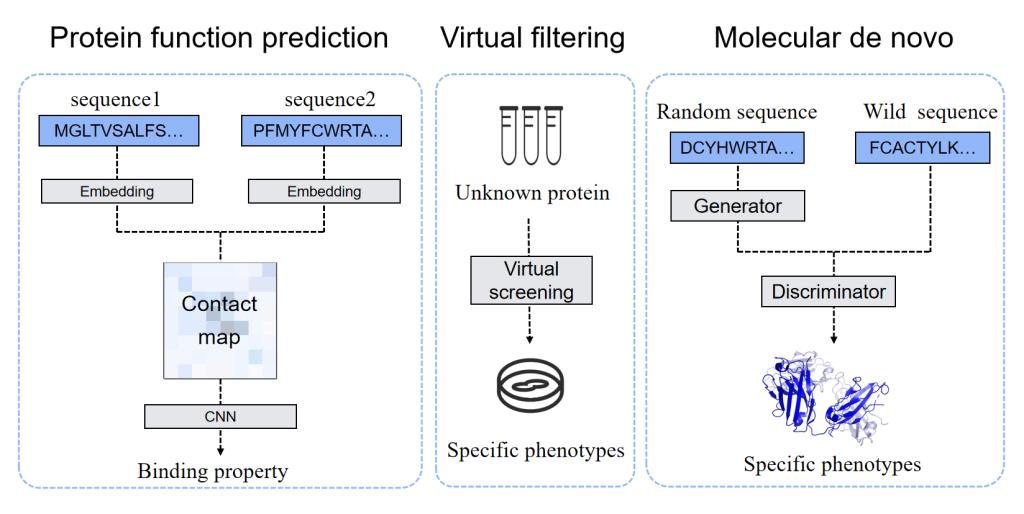Research for Fun
Trustworthy Machine Learning
With the goal of building robust and secure machine learning algorithms, we explore a range of topics, including adversarial attack/defense, backdoor attack/defense, and deep model watermarking. In addition, we are ambitiously pursuing interpretable machine learning techniques to gain a deeper understanding of the vulnerabilities and fairness issues inherent in deep learning models

Privacy Protection
We prioritize protecting the privacy of machine learning systems, by investigating various privacy-enhancing techniques such as differential privacy, secure multi-party computation, and homomorphic encryption. We also pay close attention to newly-emerged privacy issues such as membership inference, model extraction, gradient inversion, and other potential vulnerabilities

Research for World
AI for Medicine
Together with healthcare providers, we aim to develop accurate and efficient AI algorithms that can be tailored to specific medical applications, such as medical imaging or drug discovery. In particular, we have a focus on nuclear medicine, where we are utilizing AI-powered image processing techniques, including PET/CT denoising and segmentation. Additionally, we are actively involved in radiopharmaceutical discovery, including the development of novel radiotracers such as 18F-FDG, 68Ga, and 131I, using AI-based methods to speed up the drug discovery process.

Autonomous Driving
Our lab is dedicated to enhancing the accuracy and reliability of autonomous driving through the development of cutting-edge algorithms and machine learning models that focus on environment sensing, such as image and 3D point data processing, as well as planning and decision-making. Additionally, we design and build tools to rigorously evaluate the performance of autonomous driving systems across a range of scenarios. Moreover, we conduct research on the regulation of autonomous vehicles and work towards establishing ethical guidelines for their safe and responsible use.
